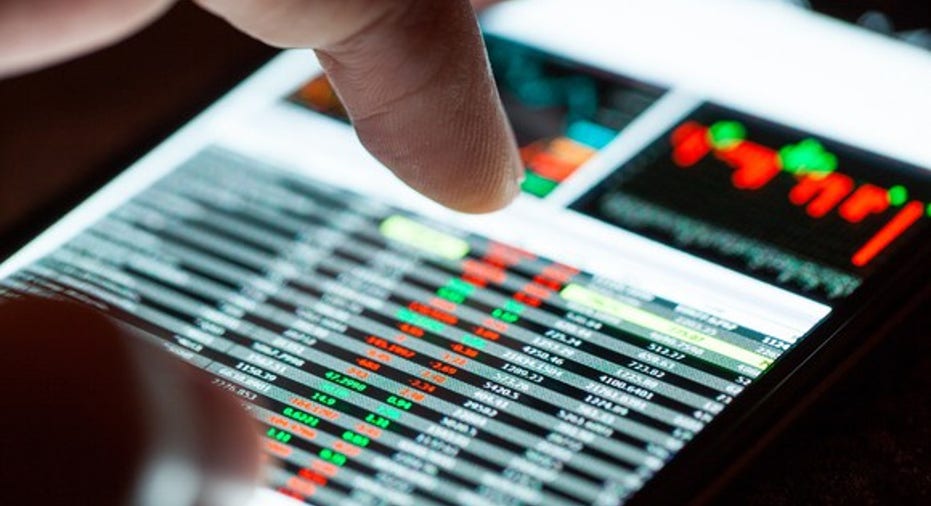Fidelity vs. Charles Schwab: A Complete Comparison

You might know Fidelity and Charles Schwab as fund managers, but they're also big players in the online brokerage industry. Fidelity and Charles Schwab give their clients the ability to make stock, stock option, ETF, and mutual fund trades from the comfort of their own homes, effectively bringing Wall Street to the average individual.
If you're looking to open a brokerage account to start making investments, Fidelity and Charles Schwab might have what you're looking for. Here's how these two brokers compare on everything from commissions to mobile apps for trading.
Trading costs and commissions
You don't have to pay an arm and a leg to make a trade any more. Fidelity and Charles Schwab have highly competitive commission rates that won't break the bank. Here's how they compare.
Source: Company websites.
As you can see, the difference amounts to just $1 per trade for stocks, stock options, and ETFs. Though the difference in commissions for mutual funds may appear large, we'd caution that investors can occasionally avoid transaction fees on mutual funds by shopping from funds that are commission-free.
Commission-free ETFs and NTF Funds
If you like funds, Fidelity or Charles Schwab could be a very good broker for you. Both brokers offer thousands of no-transaction-fee (NTF) mutual funds and commission-free ETFs that help you avoid commissions on certain funds.
Source: Company websites.
Truthfully, investors can find plenty to like on the list of commission-free ETFs and mutual funds offered by either broker. Fidelity and Charles Schwab both offer a compelling line up of funds that could be used to build a diversified retirement portfolio, without paying a transaction fee to buy them.
Account minimums
Fidelity requires that its clients start with an initial deposit of $2,500, whereas Charles Schwab offers no-minimum brokerage accounts. Charles Schwab might get the advantage here for investors who want to start small, but neither brokers' account minimums are especially high. Retirement investors should always check to see if they qualify for bonuses and other offers for opening an IRA account.
Trading platform
The Motley Fool is all about the virtues of buy-and-hold investing, and we often hold individual stocks for years at a time. Therefore, we don't do much trading, and we certainly don't obsess about what our trading platform looks like when we go to make a trade. In truth, we're the wrong people to ask about platforms for traders.
But for investors who think in terms of years, Fidelity and Charles Schwab fulfill the most basic need by enabling you to buy and sell an investment with just a few clicks. Realistically, we tend to think that the "quality" of a trading platform is mostly just a personal opinion, anyway, so we'll defer to your opinion when it comes to the trading platforms.
Fidelity and Charles Schwab customers give high ratings to their broker's mobile apps. Image Source: Getty Images.
International stocks and ADRs
Want to shop stocks on foreign markets? Fidelity can route your order to 25 different countries around the world, but you'll pay a steeper commission for each trade. However, you can trade American Depositary Receipts (ADRs) at the standard commission rate, given ADRs are listed in the United States.
Charles Schwab does not offer access to international markets, but investors can trade ADRs on its platform. If international stocks are important to you, this may be a difference maker.
Research quality and tools
Discount brokers used to be simple no-frills operators that gave their customers not much more than a way to trade stocks online. That's changing, however, as discount brokers add more research tools and give their investors access to more information as a perk of being a client. Both Fidelity and Charles Schwab offer research that compliments a long-term investment horizon.
Schwab clients get access to news from the major wire services, the firm's proprietary research, in addition to research from third-parties that includeCredit Suisse, Morningstar, and S&P, just to name a few of its providers. Fidelity has news from the wire services, analyst upgrade and downgrade information from more than 100 different firms, and access to thousands of reports from third-parties like Morningstar, and S&P. You can find plenty to read about your investments as a client of either brokerage.
Mobile app
Customers and users of both brokers think highly of their mobile applications. Here's how each brokers' users and clients rated their mobile capabilities on iOS and Android (as of 12/05/2016).
Source: Relevant app stores.
Picking a brokerage account for you
If you want low-cost trades, a wide selection of no-transaction-fee funds, and ample research capabilities, you'll find that Charles Schwab and Fidelity both have what you're looking for. Truly, people who take the long-view with their investments could be quite pleased with the capabilities of either brokerage.
To be clear: The Motley Fool does not endorse any particular broker. That said, we are interested in helping investors pick the right broker for their individual needs. Check out Fool.com's Broker Center for a comparison of brokerage firms and current special offers.
A secret billion-dollar stock opportunity The world's biggest tech company forgot to show you something, but a few Wall Street analysts and the Fool didn't miss a beat: There's a small company that's powering their brand-new gadgets and the coming revolution in technology. And we think its stock price has nearly unlimited room to run for early in-the-know investors! To be one of them, just click here.
Jordan Wathen has no position in any stocks mentioned. The Motley Fool has no position in any of the stocks mentioned. Try any of our Foolish newsletter services free for 30 days. We Fools may not all hold the same opinions, but we all believe that considering a diverse range of insights makes us better investors. The Motley Fool has a disclosure policy.



















